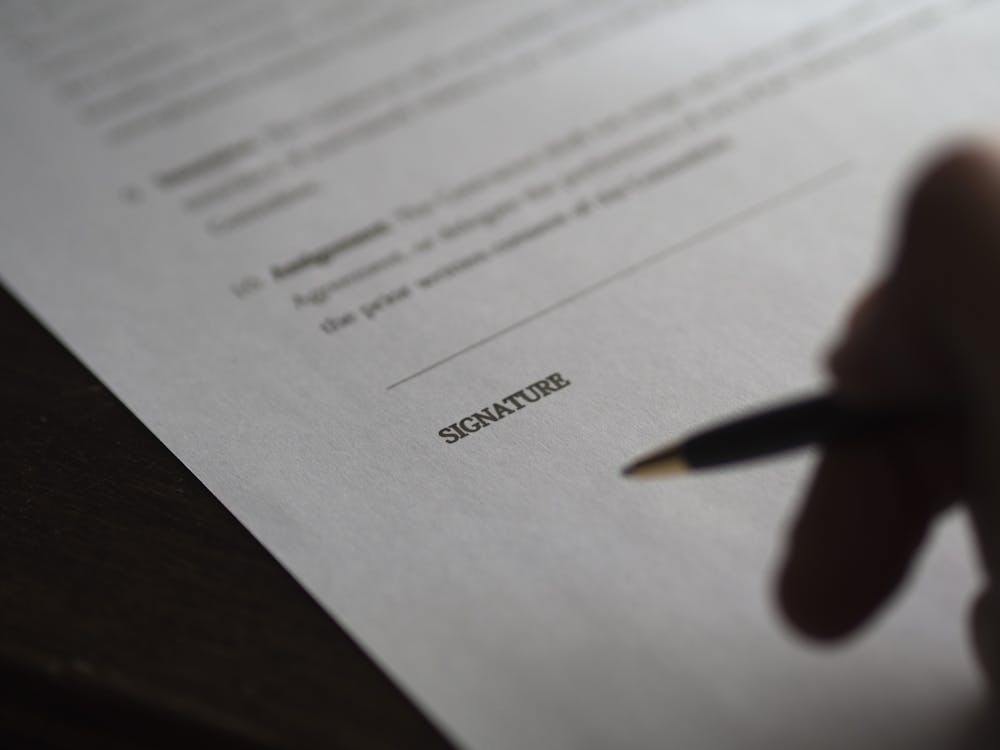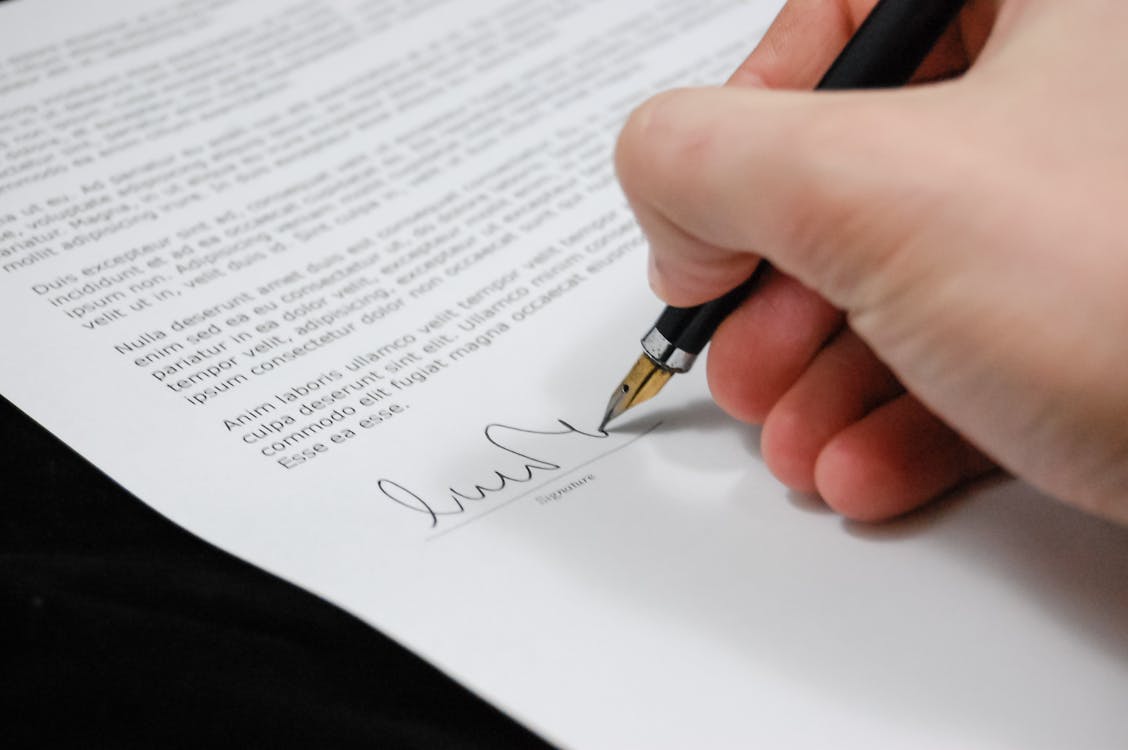Can You Get Your Good Faith Deposit Back
Good Faith Deposit and Security Deposit are two of the most common rental terms that could easily leave the uninitiated scratching their heads.

Where are they used in the rental process? Are their functions the same? Any differences between them at all? We'll answer your queries about these two important rental terms in this article.
-
Good Faith Deposit
When it's used
Good Faith Deposit (a.k.a. Booking Deposit) goes hand-in-hand with the tenant's Letter of Intent (LOI) to the prospective landlord. While writing an LOI and putting down a Good Faith Deposit are not obligatory in the rental process, it's a good (and common) practice.
Role in the rental process
As its name implies, a Good Faith Deposit is the tenant's goodwill gesture that indicates his willingness to enter into a rental agreement with the prospective landlord, with his requirements all clearly indicated in the LOI.
Upon receiving the LOI and Good Faith Deposit, the landlord will typically stop seeing other prospective tenants and proceed to prepare a Tenancy Agreement for the prospective tenant.
Amount and validity
A Good Faith Deposit is typically equivalent to one month's rental for a one-year lease or two months' rental for a two-year lease.
The Good Faith Deposit will only serve its purpose for a few days until the Tenancy Agreement is signed. After signing the Tenancy Agreement, the Good Faith Deposit will be converted into the Security Deposit.
In the event of Disputes
If disputes arise after signing the LOI but before signing the Tenancy Agreement:
- If the prospective tenant is the one who explicitly backs out on the decision to rent, then the prospective landlord has the right to keep the full Good Faith Deposit.
- If it's clearly the prospective landlord who changes his mind about renting to the prospective tenant, he must refund the full Good Faith Deposit.
- In the very rare situation where both parties couldn't see eye to eye on who is backing out of the rental deal and the prospective landlord adamantly refuses to return the Good Faith Deposit, the prospective tenant may file his case at the Small Claims Tribunal if the amount involved is less than S$10,000. The disputed amount can be increased up to a maximum of S$20,000 if both tenant and landlord agree in writing. For more information, check out the State Courts of Singapore online. However, do note that Singapore's laws are pro-landlord, so the tenant must have a strong case to win.
-
Security deposit
When it's used
Security Deposit is given to the landlord after the Tenancy Agreement is signed between tenant and landlord. Signing the Tenancy Agreement and tenant payment of the Security Deposit is an obligatory step in the rental process.
Though you don't have to seek HDB's approval if you only want to sublet rooms in your HDB flat, it's obligatory that you register your tenant's details with HDB within 7 days. You must keep HDB up-to-date on your subletting status when you extend, renew or terminate a lease. Failure to do so repeatedly could lead to your flat being acquired by HDB.
Role in the rental process
The Security Deposit serves as compensation for the landlord should the tenant accidentally damage any items in the property during his stay there.
By the end of the lease, the landlord must refund the Security Deposit to the tenant, less any deductions.
Amount and validity
The Security Deposit is converted from the Good Faith Deposit upon the signing of the Tenancy Agreement. It'll be held by landlords till the end of the lease.
In the event of Disputes
Always refer to the Tenancy Agreement for what has been agreed upon regarding the Security Deposit. If both tenant and landlord have taken the time right from the beginning to lay out the terms for the Security Deposit, disputes could have been avoided.
- If the tenant prematurely terminates the lease, the landlord typically has the right to keep the full Security Deposit.
- If it's the landlord who initiates a premature lease termination (which is very rare), he must refund the full Security Deposit to his tenant.
- For tenants, check out more ways to ensure that your Security Deposit is protected here.
- For landlords, read about the best practices for Security Deposit here.
Tips for Protecting your Security Deposit as Tenants
1. Pay your rent promptly and in full
There's nothing more frustrating for landlord than having to remind the tenant to pay up on time every month. Some landlords may deduct the outstanding or unpaid rent from the security deposit. So paying your rent on time and in full is a very basic step which you can take to safeguard your security deposit.
2. Take care of the property as if it's your own
Keep up with regular cleaning and sort out minor repairs before they turn into something major (and more expensive). This way, you can return a well looked after house to your landlord by the end of your lease and he'll have no reason to make any deductions for property damages from the Security Deposit.
3. Enlist the help of professional cleaning/renovation services yourself
There are some cleaning or renovation work which needs to be taken care of by the professionals. For example, you accidentally spilled a bottle of red wine on the carpet or you left holes in the wall after removing your favourite painting.
It's best that you choose the cleaning/renovation services yourself as you can control the costs much better that way. Don't leave it to the landlord to deduct the expenses from the Security Deposit.
4. Be very, very thorough during property inspection before moving in
From the walls, floor, ceiling, appliances to fixtures in every room, take time to check for any prior damage. It's good to snap photos every now and then so that you can have documentation of the house's condition before moving in.
At Comfy, you can keep all your move in/move out photos, rental agreements, payment receipts, and more online. Should there be disagreements over certain conditions of the house before you hand it back to your landlord, there are always photos for reference. Disagreements can be resolved amicably and no Security Deposit deductions need to be made.

5. Politely ask to see the receipts for any deductions
Should you feel a deduction in the Security Deposit is uncalled for or unjustified, you may politely asked to see the receipts.
6. Clearly state the Security Deposit terms in the Tenancy Agreement
For example, you may wish to include additional clauses like 'the security deposit can only be used for property damages or unpaid rent' or that the landlord 'must advise in writing before making deduction from the Security Deposit.'
To ensure that you get back your Security Deposit as soon as possible by the end of the lease, you may include something like "Security Deposit must be refunded to tenant within xx days from the end of the lease".
Security Deposit Best Practices for Landlords
To avoid future disputes over the Security Deposit with your tenant, you can clearly indicate the following in the Tenancy Agreement:
1. How soon the Security Deposit should be returned
Some tenants may need to leave the country soon after the end of their lease (for e.g. expatriates). To avoid any delay in the refund of the Security Deposit to the tenant, indicate how soon it should be returned to the tenant in the Tenancy Agreement.
2. Types of deductions from the Security Deposit and how much
For example, both of you and your tenant may agree that only damages pertaining to the property not exceeding $200 or only unpaid/outstanding rent can be deducted from the Security Deposit. Doing so will set boundaries on how the Security can be utilised and will go some way in avoiding disputes later on.
3. Keep receipts/copies of any deductions made
This is for your own reference as well as to be able to show your tenant should he ask to see them.
In Conclusion
Searching for a place to rent? Have a spare room you'd like to rent out? Check out Comfy! With online applications, digital leases, and online rent payments, Comfy's online platform helps landlords and tenants simplify their rental experience.

Get started with Comfy today!
Can You Get Your Good Faith Deposit Back
Source: https://getcomfy.co/blog/good-faith-vs-security-deposit/
0 Response to "Can You Get Your Good Faith Deposit Back"
Postar um comentário